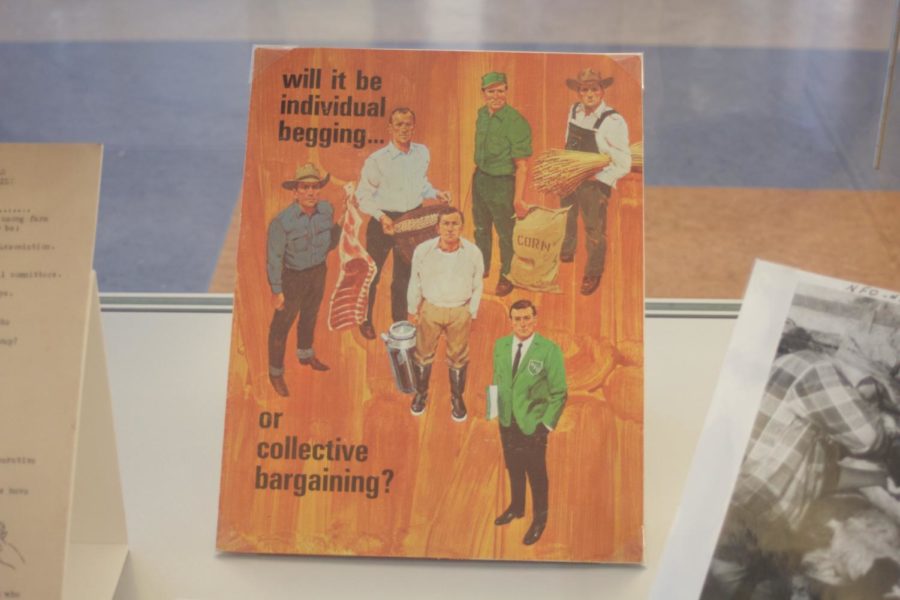‘Activist Agriculture’: the mobilization of farmers during the twentieth century
July 18, 2018
Parks Library held an exhibit called “Activist Agriculture,” outlining the struggles of farmers during the early-to-mid 20th century and the mobilization of people as a result.
Olivia Garrison, Iowa State library associate and one of the coordinators of the exhibit, said farmers started to go against norms in the pursuit of economic change.
“One thing that binds this all together is the collective action, not an individual but groups working together to make a change,” Garrison said. “With farming you tend to think of it as individualistic, but they came together and sort of went against that stereotype.”
Iowa State Librarian Amy Bishop also helped with the exhibit and spoke about what drove farmers to their methods, whether it was rallying at the capital or through violent actions.
“We had three specific items that we focused on,” Bishop said. “One was the ‘Cow Wars,’ another was the National Farmers Association and the Milk Holding Action of 1967.”
Under the Milk Holding Action, farmers withheld dairy products from market in order to try and get milk processors to grant contracts for fairer dairy prices.
Bishop explained how this “took a page from other labor movements.”
“They weren’t getting paid enough for their product so this was an opportunity to change that,” Bishop said. “[Farmers] took a stance and said, ‘we need to set a price for our products and work together to get processors to sign contracts.'”
In addition to withholding milk from the market, farmers, who were collectivized under the National Farmers Association, dumped milk in protest.
Before 1967, farmers had been struggling with the economy for nearly 50 years.
“Post-war price busts and the Great Depression only exacerbated the general erosion in farm parity as increasing costs of production were not matched by an increase in farm commodity prices,” according to the Iowa State Library website. “In response, farmers organized in an effort to move from being victims of the economic and social situation to self-determined shapers of action.
Another item talked about was the “Cow Wars,” wherein the government had mandatory testing for cows to find tuberculosis. Tuberculosis could be passed from a cow’s meat or milk products to humans.
If a cow was found to be infected with the disease, ⅓ of the cost was covered by the state government, ⅓ of the cost was covered by the federal government and the last third of the cost was covered by the farmers themselves.
This led to a huge loss in profits for farmers and drove many to trying to impact change.
For more information on the exhibit and all of the pictures used, go to their website here.
















